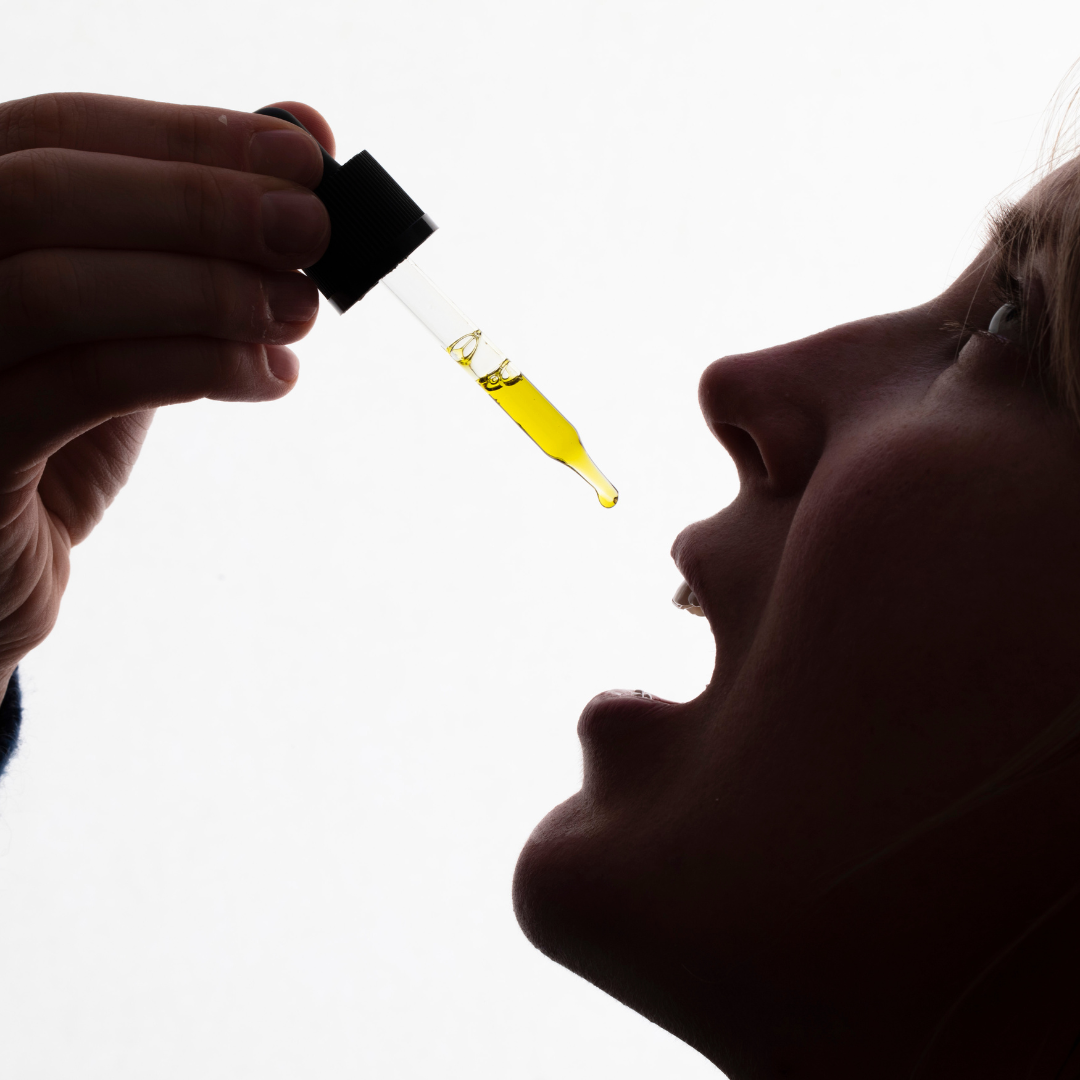
Cannabidiolic acid (CBDA) is a non-psychoactive compound abundantly found in the raw cannabis plant. CBDA is similar to its more popular cousin, cannabidiol (CBD), in that it is derived from the same source but differs in its chemical structure. Although CBDA has not been studied extensively, preclinical studies suggest that it may hold promise when used as part of a holistic wellness regime. Because CBDA does not have psychoactive properties, there are few concerns about its potential for abuse.
This article aims to dispel the myth that Cannabidiolic acid (CBDA) is addictive and explore the truth. We will also look at how CBDA works, its potential health benefits, and how to use it safely and responsibly.
Article Highlights:
- Cannabidiolic acid (CBDA) is a non-psychoactive compound abundantly found in a raw cannabis plant.
- CBDA is converted into CBD when exposed to heat or UV light through the process known as decarboxylation.
- CBDA, like CBD, interacts with the body's endocannabinoid system (ECS) by activating and regulating cannabinoid receptors.
- Research suggests that CBDA does not result in any psychoactive effects suggesting it's not addictive. It doesn't produce physical dependence, psychological dependence, or tolerance.
What Is CBDA, and How Does It Differ From CBD?
Cannabis sativa plant contains over 100 different acidic cannabinoids. Most of the cannabinoids have been found to have potential benefits in treating many health issues and disorders.
One of the most well-known cannabinoids from the hemp plant is cannabidiol (CBD). Unlike THC, CBD is non-psychoactive, meaning it does not produce the "high" associated with recreational cannabis use.
But CBD is not actually made by any cannabis sativa plant, it is naturally created in the acidic form. The acidic form of CBD is called CBDA, or cannabidiolic acid. CBDA has a similar structure to CBD, however, it contains a carboxyl group (-COOH) attached to its chemical structure, which gives it its acidity. On the other hand, CBD does not contain a carboxyl group. This difference gives CBD its non-acidic properties and a different chemical behavior.
CBDA is found in raw, unheated cannabis. It is converted into CBD when exposed to heat or UV light through the process known as decarboxylation. Just like CBD, CBDA has its own unique set of potential benefits and is being studied in research and systematic review conducted by scientists.
CBD and CBDA: Differences in Effects
Studies have found that both CBD and CBDA can alleviate symptoms from psychotic disorders, making it a promising antipsychotic drug. They also have anti-inflammatory and analgesic properties, and may also have the potential as anti-anxiety, and anti-seizure medications.
Additionally, research has shown that CBD may have the potential to alleviate symptoms of certain mood disorders, such as depression and anxiety. However, researchers now believe that CBDA has a stronger affinity for the 5HT1A receptor, making it possibly more effective for treating such conditions than CBD alone.
It is important to note that more clinical studies are needed before fully understanding how these compounds work together or alone as conjunctive medical treatment.
CBDA and CBD: Differences in Dosage
The dosage for CBDA and CBD can vary depending on different factors. Two main important factors to consider are the type of product and the person taking it. But in general, CBD is more commonly used in higher doses than CBDA. The reason is that CBDA is more bioavailable than CBD. This means that CBDA is more easily absorbed by the body.
For CBDA, we typically recommend starting from 20 to 50mg per dose, and working your way up from there to what works for your body.
Additionally, CBD has been studied more extensively, so there is more information available on appropriate dosing. It is also important to note that CBDA is not FDA approved as a medicine, and CBD only for epilepsy, and there is no official dosage recommendation. However, a reputable brand will include dosing in its packaging, so you'll be guided accordingly.

How Does CBDA Work?
CBDA, like CBD, interacts with the body's endocannabinoid system (ECS) by activating specific cannabinoid receptors. Research has shown that CBDA interacts with CB2 receptors, which are known to regulate pain, inflammation, and other physiological processes. Clinical data have shown that the activation of CB1 receptors may produce significant reduction in symptoms associated with certain medical conditions.Unique to CBDA are its pain relief effects via its anti COX 2 properties. COX 2 is a critical enzyme that promotes inflammation and pain, and a classic target of drugs like ibuprofen and aspiring. Additionally, CBDA also activates the serotonin receptor 5HT1A, which may also be critical in its positive effects on mood.
The Science Behind CBDA: Understanding Its Potential Health Benefits
CBDA has been the subject of many studies, and while further research is needed, preliminary studies revealed that it may have a wide range of potential therapeutic properties. Current findings point to a strong interaction with the endocannabinoid system and additional unique properties of CBDA.
CBDA and superior absorption
CBDA, like all other acidic cannabinoids, has superior absorption to their neutral counterparts. For example, new studies found that CBDA is 450% to 1000% better absorbed by the body than CBD.
CBDA and Inflammation
CBDA may have potential anti-inflammatory properties, which could make it practical for treating certain types of pain and inflammation. Studies have found that CBDA can reduce inflammation in the gut and the blood. This could make CBDA a potential treatment for inflammatory bowel disease, eczema, and acne.
CBDA and Cancer
Clinical and preclinical findings have shown CBDA to have anti-proliferative effects, meaning it can inhibit the growth of certain breast cancer cells. More research is needed before these findings can be used in clinical practice, but they suggest that CBDA could potentially be used as a treatment for breast and colon cancer.
CBDA and Anxiety and Depression
Studies revealed that the CBDA may have anxiolytic properties. Research has shown that CBDA can reduce anxiety and depression-like behaviors in animals. Preliminary evidence in human trials have also shown promise in alleviating stress induced anxiety.
CBDA and Neurological Disorders
CBDA has been found to have neuroprotective properties. CBDA works by reducing oxidative stress and inflammation in the brain. This research data suggests that the cannabinoid may be a potential treatment for various neurological disorders such as Alzheimer's.
Studies have found that CBDA can modulate the activity of specific CB2 receptors in the body. CBDA may significantly reduce neuropathic pain, a type of chronic pain caused by damage to the nervous system.
CBDA and Autoimmune Disorders
It's also been found that many cannabinoids that regulate the CB2 receptor, such as CBDA, can treat autoimmune disorders such as rheumatoid arthritis and multiple sclerosis. This may be due to the almost ubiquitous presence of the CB2 receptor on all immune cells. Studies have shown that CBDA can modulate the immune system, reducing inflammation and preventing damage to the body's tissue.

CBDA and Addiction: Separating Fact from Fiction
Addictive behaviors are characterized by a pattern of repeated actions despite negative consequences. Drug addiction, including cannabis addiction, can lead to a range of adverse events. These may include impaired cognitive function, mental health issues, and damage to physical health.
However, as mentioned above, CBDA does not result in any psychoactive effects suggesting its not addictive.
CBDA Does Not Cause Physical Dependence
CBDA has not been found to produce physical dependence in animals or humans. When the body becomes accustomed to substances it often uses, withdrawal symptoms usually occur when it is suddenly removed. However, studies have not found that CBDA produces physical dependence, suggesting that it is not addictive.
CBDA Does Not Cause Psychological Dependence
Also, CBDA has also not been found to produce psychological dependence, similar to CBD clinical trials. Psychological dependence happens when an individual needs to use a substance to cope with daily life. Research suggests that CBDA does not produce psychological dependence, further suggesting that it is not addictive.
CBDA Does Not Cause Tolerance
Lastly, no clinical studies have concluded that CBDA produces tolerance. Tolerance occurs when the body becomes accustomed to a substance, and more is needed to achieve the desired effect. It is clinically not proven that CBDA produces tolerance, supporting the claim that it is not addictive.
While some individuals may need to use CBDA as a daily routine to help control inflammation, there is currently no evidence to suggest that it is addictive.
CBDA as Potential Drug Addiction Therapy
CBDA is being studied for a potential use in treating drug addiction and other substance use disorders, such as opioid addiction. Despite the legal status of cannabinoids and varying by jurisdiction in the federal law, there is a growing body of clinical evidence to support hemp based cannabinoid use in managing drug dependence.Studies in genetic animal models have shown that CBDA may not produce the same rewarding effects associated with addiction as other cannabinoids, such as THC. Research suggests that it may be less likely to be associated with THC cannabinoid addiction. However, more research is needed to fully understand the effects of CBDA and confirm its potential as a treatment option for addictive behaviors.

Safety and Dosage: How to Use CBDA Responsibly
Generally, CBDA is considered safe. However, it is important to use it responsibly and follow the recommended dosage.
CBDA and Drug Interactions
CBDA may interact with certain medications. These include drugs such as blood thinners and antidepressants. Consult your doctor before taking CBDA if you have a certain medical condition and are taking any medications.
Pregnancy and Breastfeeding
Although more research is needed, there is currently not enough information to determine the safety of CBDA during pregnancy and breastfeeding. It is recommended to avoid using CBDA during this time unless under the guidance of a healthcare professional.
Recommended Dosage
The recommended dosage for CBDA is still being studied, but it is generally thought to be much lower than that of CBD. A typical dosage of CBDA is around 20-50mg per day, but it is always best to start with a low dose and gradually increase it as needed.
Quality Control
Using a high-quality CBDA product tested for purity and potency is essential. Be sure to purchase CBDA products from a reputable brand, and look for products that have been third-party laboratory tested.
Takeaway
Cannabidiolic acid (CBDA) is a non-psychoactive compound found in the cannabis plant that is gaining attention for its potential health benefits. CBDA has a higher affinity for specific receptors in the body, and superior absorption, hence, it may possibly be more effective for conditions such as inflammation, cancer, mood disorders, neurological disorders, and autoimmune disorders than other cannabinoids.While some people have concerns about the potential for CBDA to be addictive, studies have shown that it is not addictive and is safe when used responsibly and at appropriate dosage. However, it is essential to consult with a healthcare professional before adding CBDA into your wellness routine and to purchase high-quality products from reputable sources.
